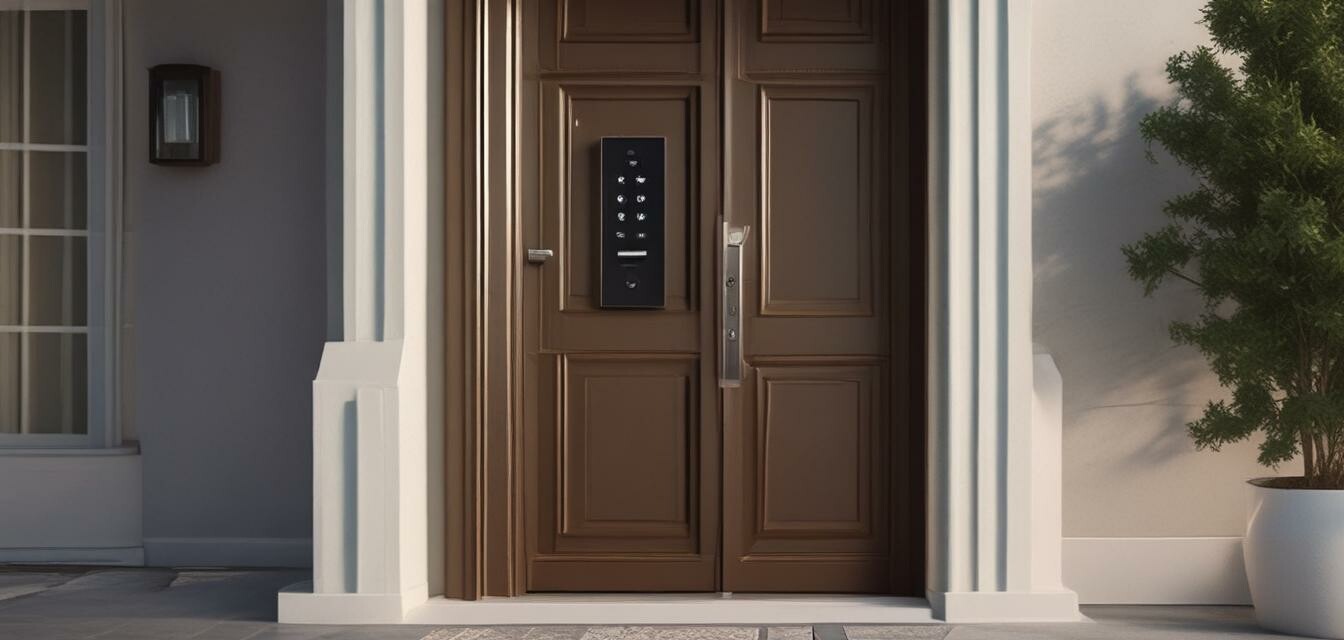
Smart Home Security
The Future of Smart Locks: Trends for 2025
As we step into a new era of home safety and convenience, smart locks are becoming an essential part of our daily lives. Advancements in technology are paving the way for more secure, efficient, and user-friendly solutions. In this article, we will explore the latest trends and innovations shaping the smart lock industry for 2025.
Key Takeaways
- Integration with smart home ecosystems is key for enhanced user convenience.
- Biometric technology is set to revolutionize access controls.
- Increased focus on cybersecurity to protect against hacking.
- Consumer preference is shifting towards sustainable and energy-efficient products.
- Enhanced user experience through mobile apps and automation.
Current landscape of smart locks
The smart lock market has exploded in recent years, with more homeowners opting for digital solutions over traditional keys. Smart locks offer improved access control, allowing users to monitor who enters and exits their premises. Additionally, the integration with mobile devices has made managing access easier than ever.
Security enhancements
As security concerns grow, manufacturers are stepping up their game to provide safer options for homeowners. Here are some of the key security features we can expect to see more of in 2025:
| Security Feature | Description |
|---|---|
| Biometric Sensors | Fingerprint and facial recognition for personalized access. |
| Encryption | Advanced encryption methods to protect data from breaches. |
| Two-Factor Authentication | Requires additional verification for access, enhancing security. |
| Remote Monitoring | Ability to monitor lock status and receive alerts from anywhere. |
Technological advancements
Innovation is a constant driver in the smart lock industry. Here are some exciting technological advancements we can expect to shape the future:
- Integration with AI: Smart locks are increasingly incorporating artificial intelligence to learn user behavior for optimized access patterns.
- IoT Compatibility: With the rise of Internet of Things (IoT) devices, smart locks will seamlessly connect with other home automation systems, enhancing overall security.
- Energy Efficiency: Manufacturers are focusing on creating eco-friendly smart locks that consume less power and utilize renewable energy solutions.
Consumer preferences
Understanding consumer preferences is crucial for the continued growth of smart locks. In 2025, we expect to see:
| Consumer Preference | Impact on Smart Lock Design |
|---|---|
| Ease of Use | User-friendly interfaces and mobile apps for accessibility. |
| Customization | Options for personalized features based on user preferences. |
| Durability | Materials that withstand harsh weather conditions and vandalism. |
| Affordability | Competitive pricing to ensure accessibility for a wider audience. |
The importance of cybersecurity
As intelligent devices proliferate, smart locks face threats from cybercriminals. Thus, cybersecurity will be a major focus for manufacturers in 2025. Strategies to enhance security will involve:
- Regular updates to their firmware to patch potential vulnerabilities.
- Implementing strong user authentication processes.
- Providing users with educational resources on safely managing their devices.
Final thoughts
The future of smart locks is promising, with new technologies reshaping how we secure our homes. As advancements continue to emerge, homeowners will enjoy both convenience and enhanced security. Interested in diving deeper into smart technology? Check our Buying Guides or stay updated with the latest trends on our News and Trends page!
Pros
- Enhanced security features for increased peace of mind.
- Remote access for added convenience.
- Integration capabilities with other smart home devices.
Cons
- Dependency on technology may lead to access issues during failures.
- Potential high initial investment compared to traditional locks.
Tips for consumers
- Research different brands and models before making a purchase.
- Look for locks with good user reviews and proven reliability.
- Consider the installation process and whether you need professional help.